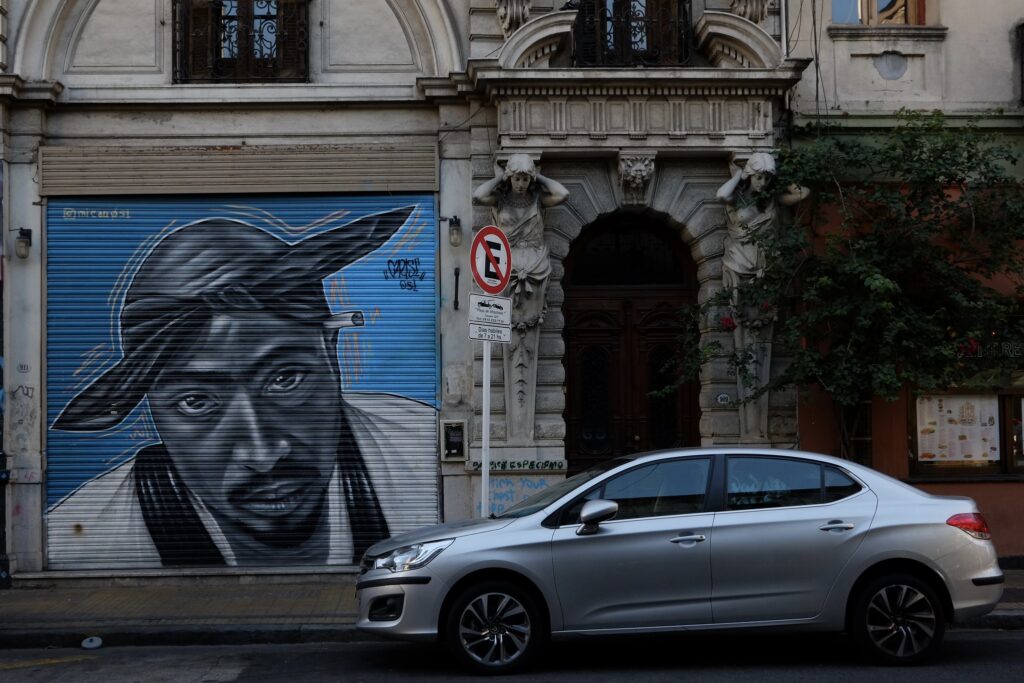Many people search for a parking spot on public streets to avoid paying for private parking. The problem is that they may encounter an unexpected guest: the “trapitos” or car guards.
These individuals “voluntarily” offer to watch over your parked car while you’re away. In return, they ask for a payment that can range from one to five dollars, depending on the demand for parking in the area.
Parking on public streets in Buenos Aires is free, except where parking meters are installed or the curb is painted yellow (indicating no parking). No one is allowed to profit from public parking. Here’s what you need to know about “trapitos,” where they usually operate, and how to handle a situation if you encounter one.
“Trapitos” or Car Guards in Buenos Aires: Who They Are and How to Protect Yourself
Who Exactly Are the “Trapitos” or Car Guards?
“Trapitos” or car guards are individuals from low-income backgrounds who make money by extorting vehicle owners looking to park on public streets.
While they pretend to be well-meaning car guards who want to protect your vehicle during your absence, the reality is they are only seeking to profit from an illegal activity and disappear like ghosts. They never actually guard your car, and most of the time, they vanish within minutes to avoid being caught by the police, only to continue their activities elsewhere.
Do They Operate Alone or as Part of a Gang?
Typically, they are members of a criminal gang that profits from “offering” parking services on public streets. For example, criminal organizations of car guards have been dismantled that were linked to soccer hooligan groups.
Although police involvement in this illegal activity has not been proven, many people claim that the absence of police is a sort of “territorial liberation,” allowing the “trapitos” to operate illegally without restrictions.
Where Can You Usually Find “Trapitos”?
“Trapitos” typically appear in areas with high tourist and vehicular traffic. Here, the demand for parking spots often creates a “competition” among drivers trying to avoid paid private parking.
Car guards are commonly found in the neighborhoods of San Telmo and Palermo. They usually operate at night and have no form of identification. In most cases, they are either homeless individuals or criminals looking to make some quick money to buy drugs or alcohol.
It’s also common to find these individuals around shopping centers, sports and mass events, fairs, and both theater and cinema venues.

Why Is the Activity of Car Guards Illegal?
Articles 91 and 92 of Chapter 2 of the Contraventional Code of the City of Buenos Aires classify the provision of parking services, car guarding, or windshield cleaning without legal authorization as illegal, as well as the provision of these “services” in large parks or during mass events.
Providing parking services, car guarding, or windshield cleaning without legal authorization is prohibited under Article 90 of the Contraventional Code of the City of Buenos Aires.
Despite the fact that car guarding in Buenos Aires constitutes a contraventional offense, “trapitos” continue to operate in areas where restaurants, bars, soccer stadiums, cultural and artistic events, and nightclubs are concentrated.
How Should You Act When a “Trapito” Appears and What Are the Possible Consequences?
When you’re parking your car in a public space where “trapitos” operate, you’ll notice that these individuals will “assist” you in parking maneuvers. If you spot one of these individuals and have not yet exited your vehicle, it’s best to leave and not park if you don’t want to pay or “negotiate” for parking.
If you exit your vehicle and only then encounter the car guard, you have several options:
- Pay the amount requested by the “trapito”: In this case, you comply with the car guard’s demand and in return, have peace of mind that your car won’t suffer any damage or retaliation. However, remember that these individuals are criminals who won’t actually provide a service and will leave the area once they’ve received your money to continue their illegal activity elsewhere.
- Pay a lower amount than requested: This is like flipping a coin. You have a 50% chance that nothing will happen and a 50% chance that your car may suffer some form of retaliation or damage.
- Refuse to pay the “trapito”: If there is no police presence in the area, it’s likely that the criminal will vent their anger on your vehicle. The most common outcomes include damage to the chassis, broken headlights, slashed tires, or broken windows.
The Buenos Aires City Police and the Public Prosecutor’s Office request that anyone who is extorted report the incident. The only way to penalize these criminals is for victims, whether they paid or not, to report that they were asked for money to park or guard their car on public streets.
When filing a report, you’ll be asked to provide the time and place of the incident. Any photos or videos you have will also be helpful. Reports can be filed at police stations or with the Public Prosecutor’s Office via email ([email protected]) or on their website (mpfciudad.gob.ar).
(Featured Image Source: Upper Uhs/flickr.com)


